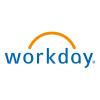How Workday’s “great user experience” is enabling Great Britain’s national mapping service to prepare for a future of growth and change.
It was in 2017 that Ordnance Survey (OS) took the decision to change some of its back-office systems. According to Shaun Ratcliffe, HR Service Delivery Lead at OS, “We became a Government Company in 2015, and there was a sense in the HR area that our policies, systems and processes were still more aligned with the way that we used to work. They didn’t reflect the way we needed or wanted to work in future and move towards a commercial focus.”
Shaun reflects on some of the old information system’s limitations. “ We had six different systems for areas like learning, expenses, time tracking and more, that made the user experience really poor,” he says. “None of these modules spoke to one another, there was no integration of data. There was little we could do to get any sensible insights or perspectives without considerable manipulation of data and spreadsheets.”
A further factor was at play: a looming deadline for when support for the old system was due to be withdrawn. “We looked at this as a great opportunity not just to simplify the systems landscape, but to improve it too by enabling employees to work in one place and by leveraging the insights and perspectives we could get from having oversight of all the knowledge available to us,” Shaun said.
OS went to a full tender process, in which Workday’s excellence in both key areas led to it being identified as preferred supplier. Following in-depth due diligence, contracts were signed in summer 2019, with a view to going live in April 2020.
“We chose Workday because we wanted to empower individuals and managers by putting the information they needed to do their jobs at their fingertips.”
Shaun Ratcliffe, HR Service Delivery Lead
New platform supports implementation as COVID-19 strikes.
According to Shaun Ratcliffe, “We were advised from the start that we’d set ourselves a super-challenging time frame. But actually I think this helped the process, as it meant we had to make decisions very quickly, with a focus on adopting, not adapting. The ‘cliff edges’ facing us drove us on: for example, if we didn’t have the platform in place, people wouldn’t get paid. That sort of awareness focused our minds.”
And then COVID-19 struck. “In lockdown, we couldn’t deliver the awareness, training and facilitating activities we’d planned. But actually having the new platform in place meant we could keep connected with people and give them information and data to help them respond to the COVID challenge.”
This quickly proved the power of Workday to people across the organization. “ Work carried on during the pandemic. We knew, thanks to processes like putting in expenses and timesheets, that traffic was being driven through the platform, so we tried to be a bit more creative and innovative about how to get people to engage with it. The great employee experience Workday offers was essential in encouraging uptake and streamlining process.”
“The trusted source of people data.”
Now, that work has paid off. In Shaun Ratcliffe’s words, “Today, Workday is the trusted source of people data at OS. That might not sound like a big claim, but from an OS perspective it’s very significant. Four years ago, there were hundreds of sources – from HR, from Finance, from Security and more.
“Now, having a single source covering all employees and contractors at the organization is a huge benefit for us, as it ensures we’re all working from the same data when it comes to who is employed, where and under what terms. It means all decisions have a strong foundation on verifiable data.”
He also highlights the number of business processes that now rely on data generated via Workday. “For example, Workday is our starting point for ensuring we get people all the resources they need to do their jobs. All data concerning hierarchy and connecting with colleagues is driven by what comes out of Workday.”
Driving growth through data-driven decision making.
Since the Workday implementation, OS has entered a new long term contract with Government and continues to pursue wider commercial aspirations which have driven significant change and growth at the organization.
According to Shaun, “The agreement, and wider commercial targets, gives us major new responsibilities and growth objectives, as well as setting improvement targets for delivering significant benefits to Government. This has seen OS grow from around 1,000 to 1,400 people, meaning many are Workday natives, recruited and on-boarded through Workday.”
Shaun’s team has in parallel continued to evolve Workday at OS, making the shift from an HR to a business platform, increasingly embracing insights and perspectives that are important for strategic, directorate-level decision making. As he says, “Increasingly this means we are able to create self-serve in the real world, changing the conversation in the business and enabling data-driven decision-making at every level.”



















